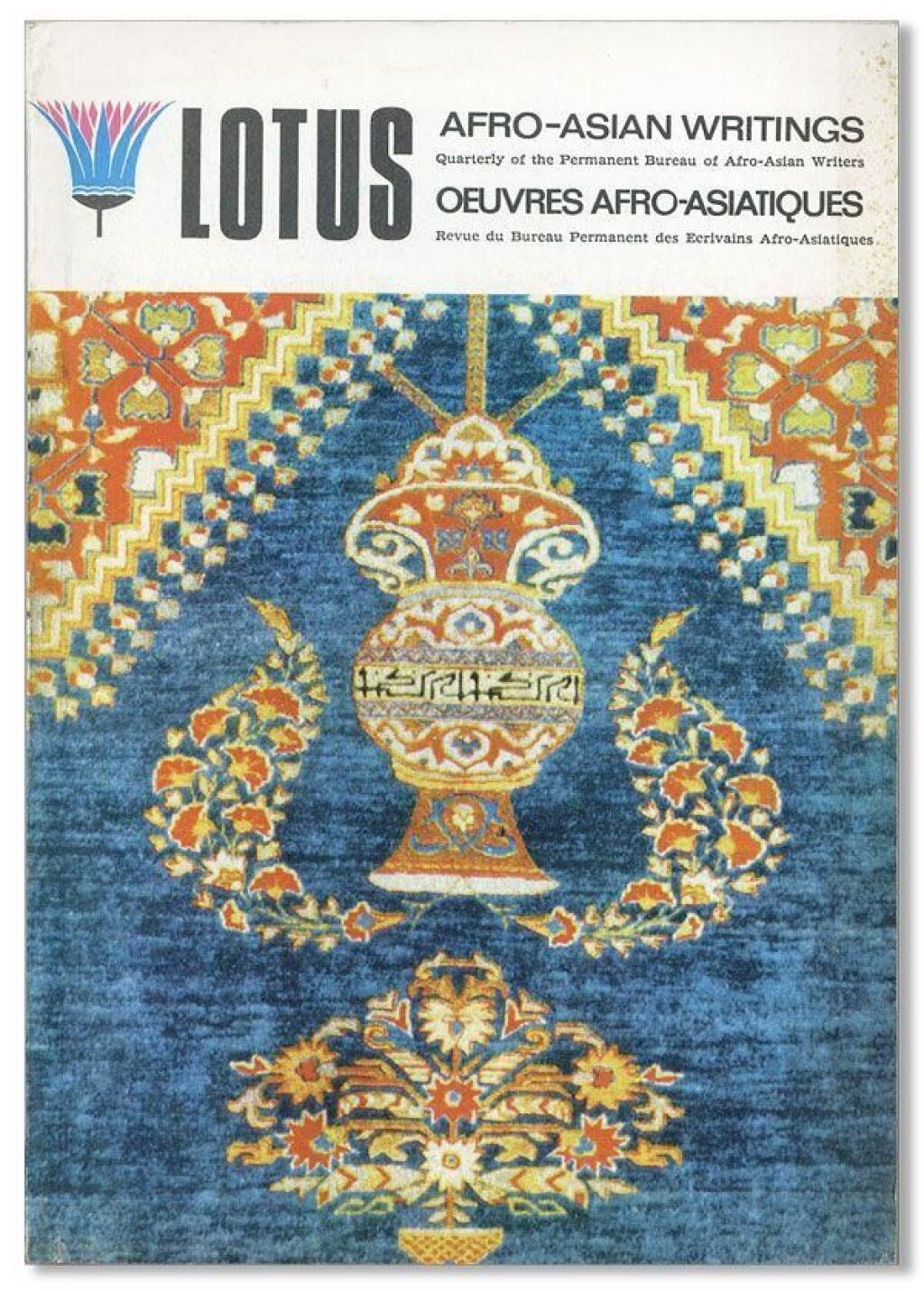Please join us for a workshop, “Afro-Asian Writers Association: an Inventory Workshop,” on Friday, May 19th. The workshop is co-sponsored by The Hagop Kevorkian Center for Near Eastern Studies at New York University.
This workshop is dedicated to the history and significance of the Afro-Asian Writers Association (1958-1991), the literary equivalent to the Non-Aligned Movement, except that it was aligned. Thanks to their Central Asian literatures, the Soviet cultural bureaucracies were able to claim a place on the Afro-Asian table and contribute to the kind of anti-colonial discourse emanating out of the Association’s multiple venues. In its heyday, this literary movement could boast at its congresses such canonical postcolonial writers as Mao Dun, Guo Moruo, Mulk Raj Anand, Ngugi wa Thiongo, Sembene Ousmane, Alex La Guma, Chinghiz Aitmatov, Chinua Achebe, Faiz Ahmad Faiz, Mahmoud Darwish, some of whose careers it helped launch. Published in Arabic, English and French versions, its literary quarterly, Lotus, brought these and other writers to readers across the two continents. Its literary award, also named Lotus, enjoyed the status of the Afro-Asian Nobel. The Association’s translation initiatives meant that to read an Indian novel in East Africa no longer meant to hold a book published in the UK. While it co-existed, competed, and was entangled with other forms of literary internationalism—pan-Arabism, pan-Africanism, negritude, pan-Latin Americanism — none of these could compete with its geographical scope, universalist claims, as well as the organizational resources and experience provided by the Soviet cultural bureaucracies. The transnational literary networks it forged and the cultural-political discourse it promoted represent only some of the ways in which it performed the preliminary work later taken up by postcolonial theorists on Anglo-American campuses.
Click here to download the conference program!
This event is co-sponsored by The Hagop Kevorkian Center for Near Eastern Studies at New York University.



